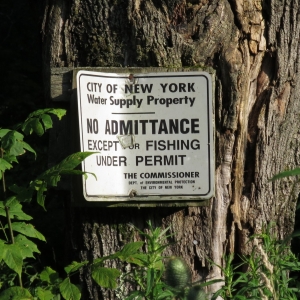The Stream, August 13, 2020: Federal Judge Demands Decision on Dakota Access Pipeline
The Global Rundown
The U.S. Army Corps of Engineers will brief a federal judge on the fate of South Dakota’s Dakota Access pipeline by the end of the month. The E.U. sends almost two million dollars in aid to South Asia. The water supply of almost a quarter-million is threatened by agricultural waste in Idaho. Floods continue in North Korea. Venezuelans struggle to access water as state-run utility prices soar.
“Every week, we adjust to what happens.” – Geraldine Escalante, a cook in Venezuela’s Vargas state who was without water for a month-and-a-half at the beginning of the pandemic. As the decay of state-run utilities had led to constant water shortages, Venezuelans now have to pay the equivalent of several months’ salary for a few days of water, gas or telephone. Many who can’t afford their bills have had to become creative, improvising pipes for siphoning water off a mountain or taking long walks to find cellular coverage. Others opt out of those services all together. Yet others are working together to find solutions, like a group of Caracas residents who built a system to use water accumulated at a stalled tunnel construction project near the El Avila mountain. The problem has become even more threatening as coronavirus tears through the country. Reuters
Latest WaterNews from Circle of Blue
Utilities Ordered To Forgive Customer Water Debt – Customer debt relief programs are more common for electric and gas utilities than for water. But with rising water bills, debt relief is getting a closer look.
A Pause for Energy Developers Threatening Texas Big Bend Region – Residents of the Big Bend region have felt imperiled by the frantic fossil and clean development occurring north of them in the Permian Basin. New market conditions make the threat much less urgent.
India’s Most Recent Cyclone Highlights a Worrying Future – Storms are growing stronger as the planet warms. India must focus on an integrated approach after Cyclone Amphan, researchers say.
By The Numbers
21 The number of days a federal judge gave the U.S. Army Corps of Engineers (ACE) to detail options for resolving the loss of a permit that allows the Dakota Access crude oil pipeline to operate on U.S. land. ACE proposed taking 60 days to determine how it would move forward, but U.S. Judge James Boasberg asked to be briefed by the end of the month. The U.S. District Court for the District of Columbia voided an easement last month that allowed a portion of the pipeline to cross federal property in South Dakota where it runs directly underneath a critical drinking water source for the Sioux tribe. Reuters
In context:
- At Standing Rock – Water, History, and Finance Converge as Sioux Nation Mounts Storied Battle Over Dakota Access Pipeline
- HotSpots H2O: U.S. Federal Judge Calls for Full Environmental Review of Dakota Access Pipeline
$1,944,607 (1.65 million euros) The amount of aid the E.U. has announced it will send to India, Bangladesh and Nepal after flooding has affected 17.5 million people in South Asia. The funding, which is part of the EU’s Acute Large Emergency Response Tool (ALERT), will be spread between the three countries to address emergency relief supplies, WASH services and shelter for those effected. Hindustan Times
In context: India’s Most Recent Cyclone Highlights A Worrying Future
Science, Studies, and Reports
A new report from Idaho Conservation League has raised concerns about contamination in Idaho’s Eastern Snake Plain Aquifer, which supplies drinking water for more than 300 thousand Idahoans. The greatest threat to the aquifer, according to the authors of the report, are nitrogen and phosphorous from dairy operations and fertilizer use on farms. The Idaho Conservation League said they hope their report brings groundwater quality issues to the attention of the Idaho Department of Environmental Quality, and the departments of Agriculture and Water Resources. Utah Public Radio
On the Radar
North Korea has warned its citizens of more flooding in the coming days after seeing historic levels of rainfall. Homes and rice fields have been reported as damaged or destroyed, although no deaths have been confirmed. The floods come during an economic slump due to coronavirus lockdowns, and many are worried about a poor harvest and food supply shortage. Voice of America
Jane is a Communications Associate for Circle of Blue. She writes The Stream and has covered domestic and international water issues for Circle of Blue. She is a recent graduate of Grand Valley State University, where she studied Multimedia Journalism and Women, Gender and Sexuality Studies. During her time at Grand Valley, she was the host of the Community Service Learning Center podcast Be the Change. Currently based in Grand Rapids, Michigan, Jane enjoys listening to music, reading and spending time outdoors.






Leave a Reply
Want to join the discussion?Feel free to contribute!